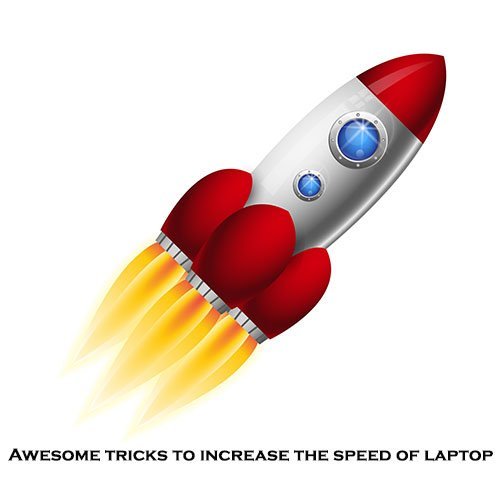
Is your personal computer running slow? Have a look at this guide to speed it up.
Do not begin searching for another computer just yet. There are just a few tricks you can try that can help you free up your computer and delay a pricey purchase.
Many factors affect your computer’s ability to run programs, run several browser windows, stream media, edit photos, and perform other complex tasks. A major factor is the efficiency of your memory—both on its hard drive and via your physical random-access memory (RAM). Simply put, it takes a lot more energy to run your computer’s program logistics when your hardware isn’t performing at peak efficiency.
You can easily free up hard drive space and increase random access memory if you would like to progressively improve your computer’s speed. Just make sure to keep in mind some of the other things you can try, too.
How can I increase Laptop Physical Memory/RAM?
The RAM of your computer basically functions as the temporary operating center of your computer. Therefore, in the event that you put it to use an excessive amount, it can slow your system’s performance down.
For some computers, it is an easy task to upgrade RAM. Nevertheless, it entails opening up your equipment and coping with sensitive components, so there is a little bit of precaution and preparation needed to prevent harming your device.
To view what your computer is currently working on, pull up your Task Manager by pressing Control + Shift + Esc and clicking on Performance, then Memory. Generally speaking, 8GB of RAM is enough for most users to browse and multi-task simultaneously without experiencing long waits due to slow boot-ups.
If you want your computer to be faster so you can play more games, however, you should consider upgrading the RAM to 16GB or even 32GB if your computer can handle it. However, that amount of RAM can be excessive (and costly) for the average computer user. Do your research before purchasing RAM to determine which amount will be appropriate for your particular computer model. Usually, there will be a specific “RAM capacity” parameter.
The process to install new RAM is just a matter of pulling out the old chips and replacing them with new ones, but it’s made easy on a desktop computer versus a laptop. But before purchasing more RAM sticks, ensure that your computer can handle the upgrade. The maximum RAM your computer can handle is the upper limit of what your motherboard and operating system can handle, and you’ll need to check whether your computer takes DDR3 or DDR4-type RAM.
How may I free up space on my computer to increase the speed of the laptop?
To increase your computer’s available memory to improve its performance, you can — (if it’s removable) replace your hard drive with a larger one or you (have to) make some cuts to what’s left on your hard drive. Don’t worry, though: if you do not have access to its contents, it’s likely there are some unused items on your hard disk that are blocking your computer’s performance.
You can remove any unwanted software by reaching for your computer’s “Windows” key and typing in “Add or Remove Programs.” You can also see all of your installed programs by the order in which they were installed; sorting by “first installed” may help show any software that’s installed on your PC but does not need. This could potentially even help your computer startup faster.
Scan your computer for viruses and malware.
You’ll want to have some kind of antimalware software on your pc in order to reduce the chance of trojans, adware, and other viruses infecting your pc and slowing it even more. If you suspect you might have a virus already, you will have hope. There are several antivirus scanners and removal tools out there for free or at cost.
Change your computer’s startup settings.
Background-running software is vulnerable to slowing down your processor and using system resources. Since it’s simple enough to close down programs running in the background you need to open Task Manager (Ctrl+Shift+Esc) to view what’s running and shut them down as needed.
Under the Task Manager, open the Startup tab. This displays which applications will launch automatically after you turn on your laptop. If there are applications that you know you are not using on a daily basis, right-mouse click on them and choose to ‘Disable’ to stop them from opening automatically (the program is not disabled in any way).
Delete your temporary files.
Clearing out your computer’s cache and browsing history is one of the easiest ways to potentially improve your computer and internet browsing experience.
Your computer’s memory accumulates temporary files to speed up operation, but these operate somewhat like ants at a picnic and can trigger a variety of issues. To get rid of these files, choose Disk Cleanup from the Search field in the Start menu. Select the Temporary Files option from the scroll-down menu to list them.
To free your browser of temporary files, you must clear them from whichever browser you use (Google Chrome, Internet Explorer, Mozilla Firefox, etc. ).
Defragment your hard drive
After you free up space on the hard drive by deleting unnecessary programs and cleaning out temporary and deleted files, defragging it can help your computer function more efficiently within the space.
Defragment your disk by going to your PC’s Control Panel, going to the System and Security section, and selecting Administrative Tools. Defragging, which can take anywhere from a few minutes to a few hours, can take a while.

